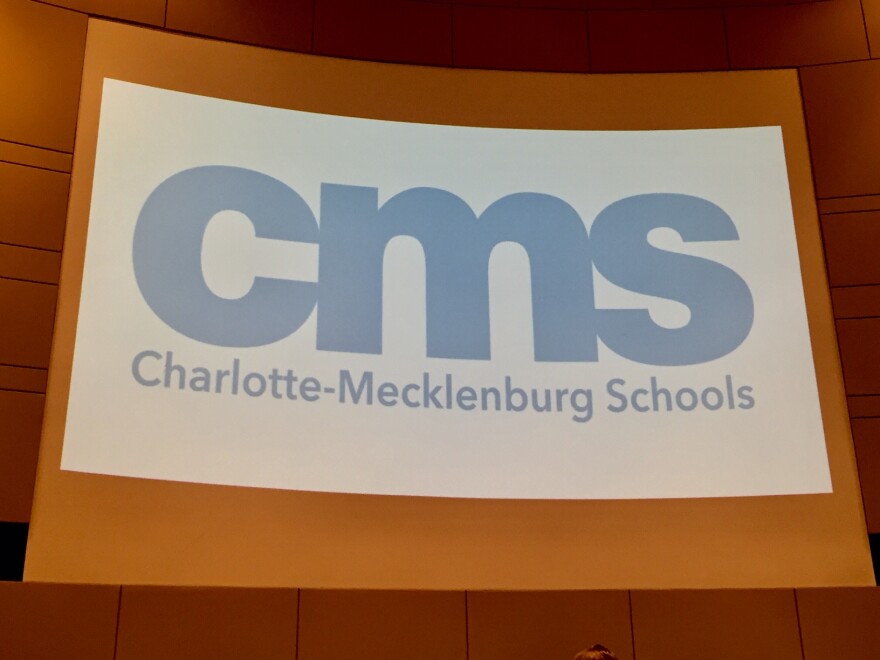Newcomers will make up the majority of the Charlotte-Mecklenburg school board moving forward after a hard-fought campaign brought a historic shake-up.
Incumbents Rhonda Cheek, Carol Sawyer and Sean Strain were defeated, with only Vice-Chair Thelma Byers-Bailey keeping her seat. In the previous 20 years, only two CMS board incumbents had lost.
Strain and Cheek are the only two Republicans on the board now. Strain lost to Democrat Summer Nunn and Cheek lost to Democrat Melissa Easley. Sawyer was defeated by Stephanie Sneed, a fellow Democrat making her third try for the school board.
Lisa Cline, who won the District 5 seat, will be the only Republican moving forward. Democrat Gregory “Dee” Rankin won the District 3 seat. Neither race had an incumbent.
The election caps a tumultuous stretch that has included controversial decisions on pandemic safety, large and growing racial disparities in academic performance and the hiring and firing of a superintendent. CMS was also caught up in national “culture wars” battles over how racism is discussed in schools and who should decide which books are appropriate for students to read.
Six district seats were on the ballot, with the three at-large members up for election in 2023. CMS board elections normally fall on odd-numbered years, but a delay in Census data needed to redraw voting districts put this one on the ballot with high-profile national and state races. Because of the delay, members elected this year will serve three years instead of the normal four.
The new board will be sworn in Dec. 13. They’ll move quickly into planning a superintendent search, a student assignment review and a 2023 bond campaign. They’ll also continue working to recover from academic setbacks created by pandemic disruption and address longstanding racial disparities.
Here’s what final but unofficial totals show:
District 1: Easley
Easley came in first in a five-person race with 30.14% of the vote. She is a CMS parent who recently retired from teaching to work in education technology. She’s co-founder of North Carolina Teachers United and campaigned on being a voice for educators. This was her first run for office.
Cheek has represented the north suburban District 1 since 2009 and is currently the board’s longest-serving member. She had announced last spring she wouldn’t run again, then filed at the last minute, saying her health concerns had been resolved. She placed second with 23.68%.
Rogelio “Ro” Lawsin, a first-time Republican candidate who had the local party’s backing to challenge a GOP incumbent, was third with 17.44%.
Bill Fountain, an unaffiliated voter who campaigned on a theme of fighting what he calls “woke culture” in CMS, was fourth with 15.38%.
Hamani Fisher, a Democrat who’s a pastor and a member of the African American Faith Alliance, had 12.48%.
District 2: Byers-Bailey
Byers-Bailey is a retired lawyer, vice chair of the school board and president of the Lincoln Heights Neighborhood Association. She took 42.18% of the vote to win a third term.
Monty Witherspoon, a minister and member of the African American Faith Alliance, had 38.41%. Juanrique Hall, a first-time candidate, came in third with 18.04%.
All three candidates for the west Charlotte District 2 seat are Democrats.
District 3: Rankin
Rankin took 76.02% of the vote in a two-person race to represent the northeast Charlotte District 3. He is a CMS parent and longtime education activist who recently served as the Black Political Caucus education chair and currently serves on the CMS Equity Committee. This was his first run for office.
Steven Rushing, also a first-time candidate, got 22.64%. He is bilingual and Latino and campaigned as a voice for Spanish-speaking students and families.
Both candidates are Democrats. Incumbent Ruby Jones didn’t run.
District 4: Sneed
Sneed prevailed in a rematch of the 2017 race to represent the east Charlotte District 4. The competition was intense and closely watched, with Sawyer targeted for defeat by some people who opposed her role in decisions on pandemic safety, equity and academic strategies.
In 2017, Sawyer beat Sneed by 16 percentage points. The current District 4 has been redrawn to include Mint Hill, and this time Sneed took 43.68% to Sawyer’s 36.63%.
Sneed is a lawyer and CMS parent who resigned as chair of the Black Political Caucus to run for school board. She ran for an at-large seat in 2019 and finished just short of claiming one of the three seats. During this year’s campaign, she opened all her remarks by saying that CMS “is in a state of emergency,” with change needed to drive better results for students of color.
Clara Witherspoon, a first-time candidate and retired CMS educator, placed third with 18.38%.
All three candidates are Democrats.
District 5: Cline
Cline took 51.6% of the vote to represent the south Charlotte District 5, which now includes the town of Matthews. Incumbent Margaret Marshall didn’t run.
Cline is a recently retired CMS educator making her first run for office. She is a Republican whose children graduated from CMS, and campaigned on the need for an experienced educator to shape academic decisions. She said the district’s current leadership doesn’t respect its educators or earn their trust.
Trent Merchant, a former school board member who is unaffiliated, took 47.48% of the vote.
District 6: Nunn
Nunn, a Democrat making her first run for office, campaigned on the need to have at least one parent of elementary school children on the board. She also said her work as a marketing executive will prove helpful in rebuilding confidence in CMS. She took 43.42% of the District 6 vote.
Strain, a Republican, was elected to represent the district in 2017 when it encompassed a strip along Mecklenburg’s southern border and included all three suburban towns. He got 57% of the vote in that race. The new District 6 covers southwest Charlotte and Pineville, with Republicans accounting for one-quarter of registered voters. Strain took 31.3% this time.
Democrat Michael Watson, a first-time candidate, had 24.18%.



